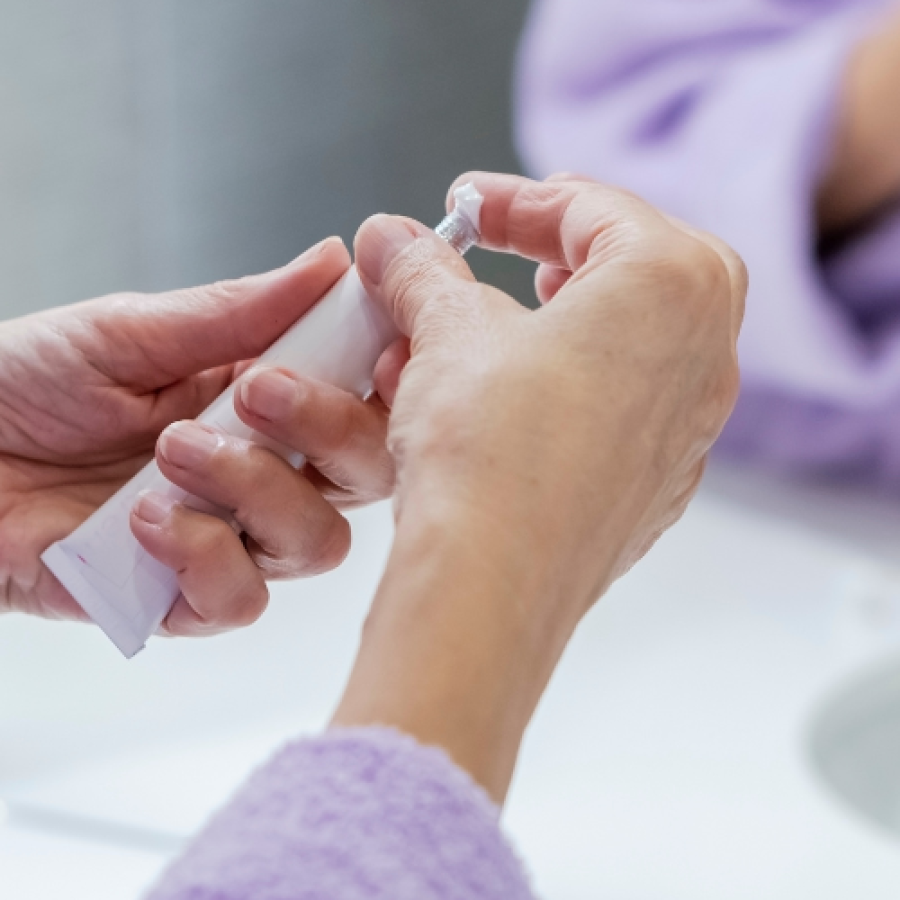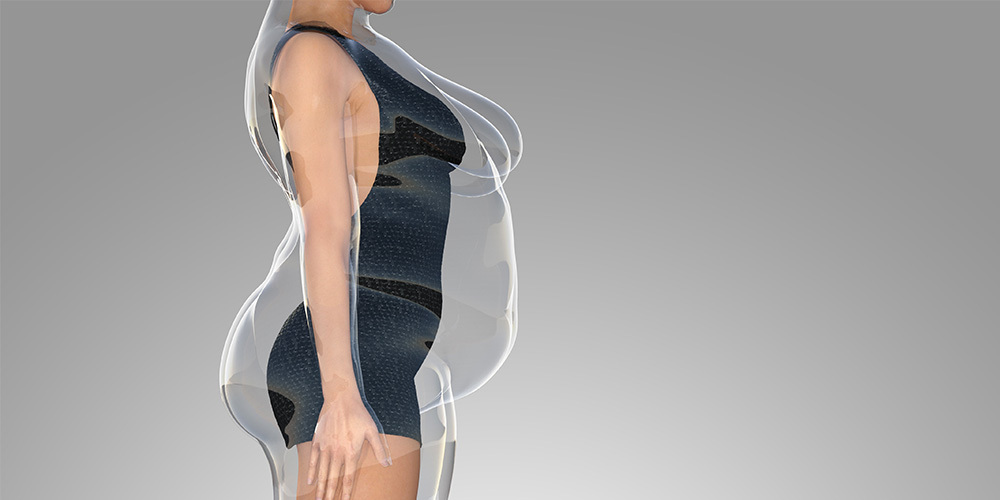
Clinical
How to Talk to Your Patients About BHRT
By Belmar Pharma SolutionsYour bustling, successful practice is full of women who really care about their appearance, and they trust ...
Posted By Madilyn Moeller, Monday, January 6, 2025

With Vrinkley Pruna, NP
Medical weight loss solutions have exploded in popularity, with demand spurring the development of even more innovative solutions. This quick adoption of life-altering medications has some wondering: Are GLP-1s and other weight loss drugs safe? FDA-approved medications are rigorously tested and reviewed. Medical weight loss is certainly an area of treatment that will continue to be studied and monitored to ensure patient safety. When prescribed and regimented by a trained and responsible clinician, weight loss medications can help patients safely achieve their health goals.
Vrinkley Pruna, NP, of Shape & Skin Medical Spa & Weight Loss, shares her insight on the safety of medical weight loss medications and how med spas keep patients safe during a weight loss program.
Click here to read an overview of the safety of top non-invasive medical aesthetic treatments.
Vrinkley Pruna, NP: “The safety of medical weight loss treatments relies heavily on the safety measures taken by the prescribing provider and the clinical staff that follow the patient. 'Medical weight loss' implies the practice of medicine and it should be treated as such - all treatments should have clearly written standardized procedures and must follow the legal requirements for prescribing weight loss treatments and dispensing medications. Medical weight loss can be done safely if each patient undergoes a comprehensive evaluation before starting any treatment and is closely monitored by their healthcare provider throughout the program. Each patient should be provided with an individualized plan and realistic goals to ensure their success.”
Pruna: “The initial consultation between the patient and healthcare provider is THE most important step. The provider must perform a thorough history and physical exam, order or review necessary labwork, form an assessment and diagnosis, then establish a clear and realistic plan with the patient.
“The patient’s initial intake form should gather all critical information about the patient’s history: allergies, current medications, medical, surgical, and social history. This can already immediately rule out patients for medical contraindications to weight loss treatments. Providers should also order or review appropriate labwork to screen patients for any underlying medical conditions that could prevent them from losing weight safely. A body composition analysis should be obtained in-office to help the provider assess the patient’s baseline muscle, fat, and water levels and create a customized plan based on the information.
“However, reviewing the patient’s intake form and reviewing measurements are simply not enough to determine eligibility to start a weight loss treatment. The provider should further assess the patient, clarify any gaps in their history, consult CURES (if prescribing controlled substances), understand their weight loss history and goals, and determine whether the patient is ready to make reasonable lifestyle changes to sustain their weight loss. If a patient says they want to lose 20+ pounds but are not willing to change their diet or exercise habits, or if they have unrealistic expectations on the timeline of their weight loss, then they may not be deemed a good candidate. It is the provider’s responsibility to assess not only the medical contraindications to treatment, but the patient’s readiness to lose weight safely and effectively.”
Pruna: “Before offering weight loss treatments to patients, providers should review their respective state Board’s guidelines for their authority to prescribe and perform those treatments. If controlled substances are prescribed, providers must have a DEA license in addition to their furnishing license. Although there is no specialized training required specifically for medical weight loss treatments, providers should commit to patient safety by staying up-to-date on FDA guidelines and latest clinical research, collaborating with other medical weight loss providers, and attending educational conferences within the industry to stay informed on current practices.”
Pruna: “A responsible medical weight loss program prioritizes patient safety over profit. Medical weight loss programs should not simply be an “add-on” to the medical spa’s service menu; instead, there should be a comprehensive program in place that monitors patient progress and sets them up for long-term success. Medical weight loss often includes medications that should be prescribed and administered in-office. Patients should be assessed frequently during their program to evaluate medication effectiveness and side effects. They should never be mailed their medications, nor should they be responsible for drawing up and self-administering their injections at home. Many adverse events and unsafe practices with medical weight loss treatments are a result of patients being improperly managed by their providers who do not regularly follow up with them.
“Additionally, providers must do their due diligence and understand everything there is to know about a treatment before offering it to their patients, including where they’re getting their medications from. Do they receive their medications from a certified lab, compounding pharmacy, or distributor? Do they have certificates showing accreditation, lab testing, and authenticity? Do their suppliers follow strict legal guidelines for safe handling of their medications? It’s easy to get caught up in the hype of the latest trends, but quickly jumping to the “next best weight loss drug” without fully understanding what it is, how it works, where they’re getting it from, and which patients would benefit most would be the recipe for an unsafe and irresponsible practice.”
Pruna: “After their initial consultation, patients should return weekly for their follow-up visits with the provider to monitor treatment effectiveness, side effects, weight, and vital signs. In my office, we celebrate every weight loss milestone with encouragement and positive reinforcement to empower our patients. We have an ongoing conversation with our patients about how their past week was in terms of their diet, exercise, sleep, and mental health. What were their improvements or struggles, and how could we support them in the next week? Our providers adjust their medication dosage, if needed, and administer the medication in-office to ensure patients are safely receiving the right dosages. During their follow-up appointments, we provide patients with additional resources to assist them in improving their daily habits. We offer registered dietitian referrals, healthy habit trackers, daily food plan templates, and offer high-protein meals that can be taken home for the week. These are resources the patient can only benefit from if they are monitored regularly in-person. Not only do these weekly visits provide support for the patients, they also ensure patients are on the right track for weight loss success in the program. Building healthy habits during the program increases the patient’s chances for sustaining the weight loss when they’re finished.”
Pruna: “Patients should first search for local medical weight loss clinics (or medical spas that offer comprehensive weight loss programs) where they can drive to and physically visit regularly. Patients should never order weight loss prescriptions online, especially if they never directly meet with a provider, and should never receive medications directly shipped to the house for self-injection or dosing. Patients should also avoid out-of-state providers who can only evaluate them through a video call. Patients need to be physically seen and monitored by a provider to ensure they are in safe hands. If these basic requirements cannot be met, patients should seek another medical weight loss provider.”
Vrinkley Pruna, MSN, NP, is Co-owner of Shape & Skin Medical Spa & Weight Loss in Huntington Beach, California. She started her career in aesthetics at Shape & Skin when it opened in 2016, while working as a bedside RN on the ENT Stepdown Unit at Keck Hospital of the University of Southern California (USC). She was also selected as an undergraduate scholar and attended the Oxford Honors Program in England, which encompassed the diversity and disparities of global health care. Her true passions are learning, improving and redefining the aesthetic industry to better the lives of her patients.
Find out more about GLP-1 weight loss treatments in medical aesthetic practices here.
Disclaimer: The information and answers contained in this section provide a general guide to services that are offered by "medical spas”. The information contained on this site is for general reference only. This information is not intended to provide medical or legal advice, and it should not be relied upon as medical or legal advice. This information is not intended to create, and receipt of it does not constitute, a practitioner-patient or attorney-client relationship. Readers: You should not act upon this information without seeking a knowledgeable healthcare provider or legal counsel that takes your individual medical history and jurisdiction into account. All uses of the content of this site, other than personal uses, are prohibited.
Related Tags
Medical spa news, blogs and updates sent directly to your inbox.

Clinical
By Belmar Pharma SolutionsYour bustling, successful practice is full of women who really care about their appearance, and they trust ...

Clinical
Win Free Exosomes → Simply Register for the Free Exosome Masterclass By MedResultsIn today’s rapidly evolving aesthetic landscape, one ...

Clinical
With Molly Muecke, RN, MSN, NP-CMicroneedling is a popular aesthetic treatment offered in 79% of med spas (2024 Medical Spa ...

Clinical
On November 5, 2025, Merz Aesthetics announced that Ultherapy PRIME® gained U.S. Food and Drug Administration (FDA) clearance to improve ...